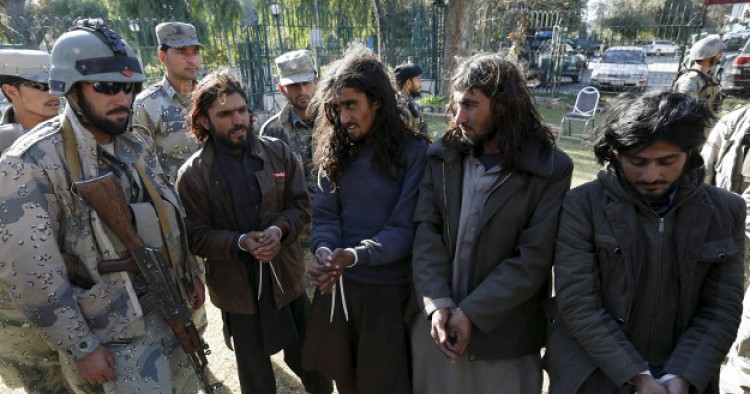Local officials in western Afghanistan say Iran and Pakistan continue to assist Taliban fighters to destabilize the region. “Pakistan and Iran support the Taliban. Residents have seen Pakistani and Iranian clerics bringing money to Taliban in Shindand [District,” alleged Abdul Ghani Noori, the head of Zer Koh District of Herat Province, bordering Iran. He claimed that between 200 and 400 Taliban militants are present in the district and called on Afghan security forces to launch an “extensive operation” against terrorists in the area. Separately, Jilani Farhad, the head of Herat Province’s public relations department, also complained about regional countries providing assistance to Taliban fighters in the province. “The presence of foreign militants and foreign supporters of terrorist groups across Afghanistan is crystal clear to everyone. We cannot ignore it,” he added.
On Wednesday, U.S. Defense Secretary Jim Mattis also criticized Iran and Russia for continuing to provide assistant to the Taliban in Afghanistan, including weapons. “Those two countries have suffered losses to terrorism, so I think it would be extremely unwise if they think they can somehow support terrorism in another country and not have it come back to haunt them,” he said during his trip to the Afghan capital Kabul.
Comment: Since the ouster of the Taliban 16 years ago, Iran has played both sides of the conflict in Afghanistan. While Tehran has cultivated close ties with Kabul and helped Afghanistan’s reconstruction, the Islamic Revolution Guards Corps (I.R.G.C.) has provided training, money, arms and sanctuary to Taliban militants to pressure the U.S. military forces to leave the country. The Iranian government has also used its ties with the Taliban to seek political concessions from the Kabul government.
While local officials in western Afghanistan often complain about Iranian support to the Taliban, senior Afghan military and political leaders have recently become more vocal on the issue as well. Earlier this month, the Chief of General Staff for the Afghanistan National Defense and Security Forces said that the Kabul government has evidence that Iran is providing weapons and other military assets to the Taliban in western Afghanistan. In an interview with the BBC Persian, Lieutenant General Mohammad Sharif Yaftali added that President Ashraf Ghani discussed the issue with his Iranian counterpart Hassan Rouhani last month in Tehran but did not disclose details of the meeting. He stressed that the Afghan government wants to resolve the issue through “dialogue and understanding” with Tehran. Asked about reports on Russia’s assistance to the Taliban, the top Afghan general said Kabul does not any evidence in that regard.
Moreover, there is a growing concern in Afghanistan about Iran’s increasing recruitment of Afghan refugees to fight Iran’s sectarian war in Syria and its implications for Afghanistan’s stability. An Iranian official revealed earlier this year that 18,000 Afghans were fighting Sunni rebels in Syria under Iran’s Quds Force command. Known as the Fatemiyoun Division, Afghans now perhaps make the largest single militia unit fighting in Syria. This is happening at a time when scores of Afghan and Pakistani Sunnis are fighting on the opposing sides of the Syrian conflict, including with the Islamic State and al Qaeda-linked groups. It is feared that when the Syrian war is over, these battle-hardened fighters with poisonous sectarian beliefs will return and inflame sectarian strife back home.
The Middle East Institute (MEI) is an independent, non-partisan, non-for-profit, educational organization. It does not engage in advocacy and its scholars’ opinions are their own. MEI welcomes financial donations, but retains sole editorial control over its work and its publications reflect only the authors’ views. For a listing of MEI donors, please click here.













